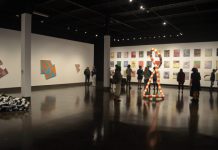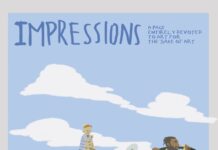In their last monthly meeting, students’ council passed a motion introduced by Stephane Hamade, Feds’ VPED, to hold a future fall reading break referendum.
Since the motion passed, Feds election officer Anne Marie Hayman has determined the referendum will be held from Nov. 4 at 10 a.m. to Nov. 6 at 10 p.m. Students can vote on vote.feds.ca.
The question students will be answering during the referendum voting period is: “Should classes start on the first Thursday after Labour Day in order to allow for two additional days off in the fall term?”
The preamble, which will be included with the referendum question during the online vote, states: “It is currently unknown at what point of the fall term the break would be. This referendum is to help determine student opinion.”
Hamade said Hayman took into consideration the time required for the formation of the “Yes” and “No” committees, the time required to prepare before the campaign kicks off, and the actual time allotted to the campaign period.
Next step in the process is to organize the “Yes” and “No” committees to campaign for either side of the question. Hayman said these committees will be formed at an organization meeting, which will be held Oct. 9 at 5 p.m. in SLC room 2105B. Any student can join either one.
Once the committees are formed there will be an interim preparation period, from Oct. 10–20, followed by a two-week campaign period from Oct. 21 to Nov. 3.
Hamade, who ran for VPED last January on the promise to bring students a referendum on the issue of fall reading break, said he doesn’t expect councillors to take a side or necessarily emerge as the face of the “Yes” and “No” committees.
“It depends on how they [councillors] feel on a certain issue,” Hamade said.
At the council meeting, the original question went through several amendments, before the question was finalized.
The original question introduced to council stated: “Do you support starting classes two days earlier in the fall, Thursday and Friday of the first week, in favour of two additional days off during the fall term?”
The debate in council, originally brought up by councillor Doug Turner, citing his knowledge of Scotland’s referendum, was surrounding the perception by multiple councillors that the question had a bias encouraging students to vote “yes.”
Several faculties have been surveyed, including science, where 79 per cent of student participants would support an alternate schedule to accommodate a fall reading break.
When asked whether or not he plans on actively promoting one side of the question, Hamade said, “I think I need to take a step back and let students decide.”
Hamade expects turnout to be at least above binding, which is seven per cent. If the GRT bus referendum turnout is any indication (28 per cent) a fall reading week referendum should expect similar or higher turnouts.
If the referendum shows a clear mandate in student opinion, the issue will be taken to the university senate, where they will ultimately make the final decision on the matter, based on further individual faculty consultations.






























